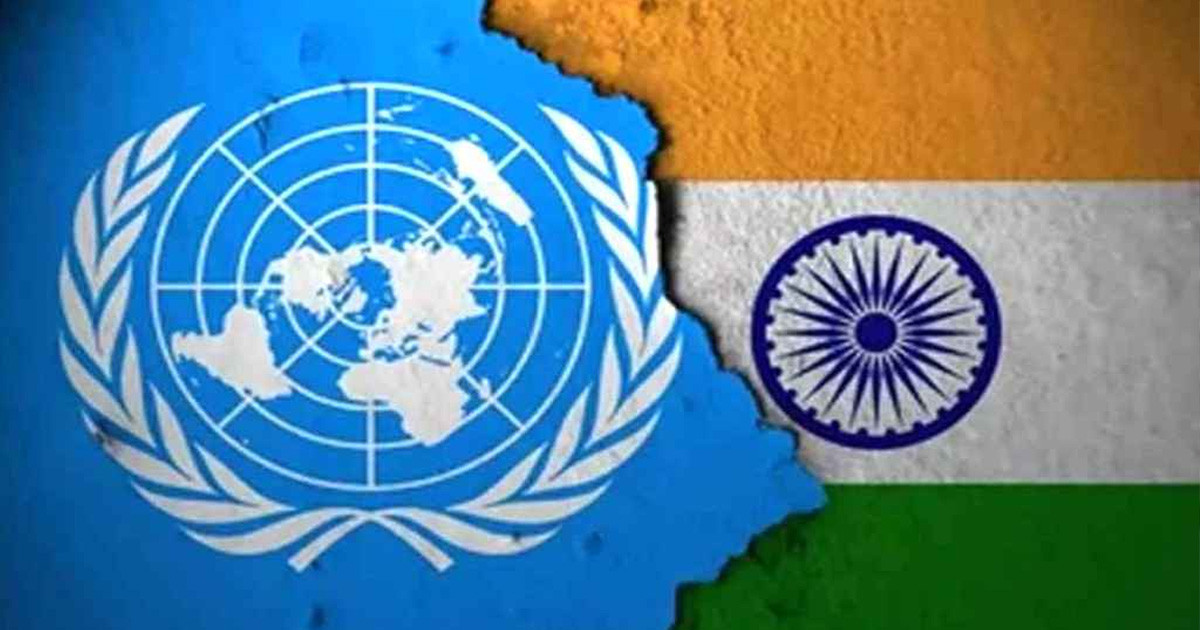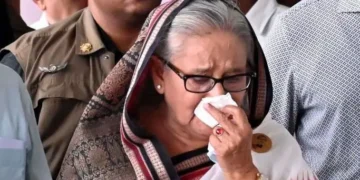Investigation Against India for Legal Basis
In a deeply alarming development, the United Nations(UN) has opened an investigation against India over allegations that approximately 40 Rohingya refugees were forcibly taken to sea and abandoned near Myanmar’s maritime boundary. The UN Human Rights Office is now probing this alleged act of grave human rights abuse.
According to a UN statement, the incident stems from India’s ongoing efforts to forcibly repatriate Rohingya refugees who had fled ethnic violence and persecution in Myanmar. Reports say dozens of Rohingya refugees living in Delhi were recently detained. Of them, around 40 were blindfolded and transported to the Andaman and Nicobar Islands, where they were reportedly boarded onto an Indian Navy vessel.
UN officials claim that once the ship reached international waters in the Andaman Sea, the refugees were forced to wear life jackets and then thrown overboard, instructed to swim to an island within Myanmar’s territory. While it is believed they may have reached the shore, there is no confirmed information about their current condition or location.
Escalation in Forced Returns
The incident is part of a larger trend. Nearly 100 Rohingya refugees from a detention center in Assam were allegedly relocated near the Bangladesh border—raising fears of covert and forced repatriation efforts without due legal process.
“This is a clear violation of international law,” said a spokesperson from the UN refugee agency. “Any attempt to forcibly return refugees without proper legal proceedings must be immediately halted.”
To investigate these serious accusations, the UN has appointed an independent expert to lead a fact-finding mission. The organization has also issued a warning to the Indian government, urging it to refrain from any form of inhumane treatment toward refugees in the future.
Legal and Human Rights Concerns
UN legal advisors have pointed out that the detained Rohingya individuals were not presented before a court under Article 22 of Indian law, which ensures judicial oversight before any deportation or detention. Skipping this legal safeguard directly contravenes the Constitution of India.
Read More: Bangladesh Receives $1.61 Billion in Remittances in First 17 Days of May
“The refugees are not criminals. They are survivors of genocide. Treating them like trespassers instead of people in desperate need of protection is both unlawful and inhumane,” said a UN human rights lawyer.
A Human Crisis Needing Global Attention
Rohingya refugees have long faced a stateless existence. After fleeing military crackdowns in Myanmar recognized by the UN as possible acts of genocide that many have sought safety in neighboring countries like Bangladesh, India, and Malaysia. However, they remain vulnerable to detention, deportation, and in some cases, violence and exploitation.
This latest incident highlights the urgent need for regional cooperation and international accountability. The UN is calling on India, a nation that has historically provided asylum to persecuted groups, to honor its humanitarian obligations and uphold the principles of international refugee law. As the investigation proceeds, the world watches hoping that justice, compassion, and dignity will prevail for a people who have already suffered too much.
Share via:


















